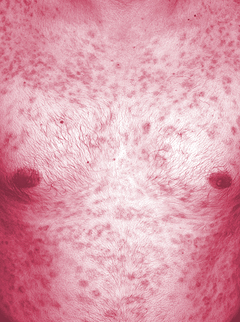Syphilis response seen as "failure"
 The Australian Medical Association says attempts to control syphilis in remote communities have been a “total failure”.
The Australian Medical Association says attempts to control syphilis in remote communities have been a “total failure”.
Federal health data shows the Northern Territory is facing around 30 new cases of syphilis each month – a much higher rate than other jurisdictions.
There are currently about 896 Indigenous men and women infected with syphilis, after it began to spread from north Queensland in 2013, and has now reached three states and the Northern Territory.
Australian Medical Association NT president Robert Parker says there is a serious lack of federal leadership.
“There's a total failure of the Federal Government to actually control the situation currently,” Dr Parker told the ABC.
“The problem is a lot of the sexual health programs have actually been defunded, so all the people you need on the ground are not there anymore to educate people on safe-sex practices.”
The Federal Government put up $8.8 million in 2017 to tackle the disease, which was distributed to Aboriginal Community Controlled Health Services (ACCHS) in the outbreak regions.
“The problem is in the Territory, half the people are serviced by government organisations, so they're not eligible for [that] funding,” Dr Parker said.
The current syphilis outbreak started in the Indigenous community of Doomadgee.
“Particularly in the centre of Australia, Aboriginal tribal boundaries, cultural boundaries, don't really relate to the state and territory boundaries currently,” Dr Parker said.
“So there's a lot of Aboriginal people travelling through the centre. Which is why this epidemic has spread really quickly.
“There doesn't appear to be any current, effective response to deal with this quite widespread issues of this very serious disease.”
The Federal Government has responded to the criticism by pointing out the size and scope of its anti-syphilis measures.
The health department says some responsibility still sits with the state and territory governments.
“The agreement of all states and territories to the action plan through the Australian Health Ministers' Advisory Council aims to ensure consistency of approach across jurisdictions. It is the primary responsibility of each state and territory to respond to matters of sexual health,” it said in a statement.







 Print
Print